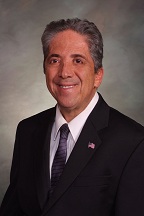April 8, 2014
Letter to all CCCS faculty from Suzanne Hudson, Secretary-Treasurer, Colorado Conference of the American Association of University Professors. On Saturday we posted to our site the updated HB 14-1154 Fact Sheet.
Dear Colleagues,
This message is to update you on the Community College Pay and Benefits Equity Act (HB14-1154).
The bill will be heard by the House Appropriations Committee on Thursday, April 10. You can help with the bill’s passage by writing to the committee members listed at the end of this email.
One goal over the past several weeks has been to amend the bill to lower the cost to the general fund.
The bill’s sponsors have managed to reduce the fiscal note to require Zero general fund dollars. The CCCS can afford to pay its faculty a living wage if only it will rearrange its priorities.
A second goal has been to simplify the bill to make it fairer and easier to implement. To that end,
the bill has been amended to protect the pay, benefits, and status of regular faculty.
Some full-timers have pointed out that the seniority system required of
the bill jeopardized their own jobs and also made it possible for
faculty with seniority to
demand classes outside their fields of expertise. Point taken. So the
bill now says that preference in class assignments will be “given first to faculty who were hired on a full-time basis prior to the effective date of this section and second
to faculty on the basis of seniority which shall be determined based
on the number of course hours that a faculty member has taught
in the relevant field of study.”
Also,
many do not like the idea of a seniority system at all; they prefer a
merit system. However, currently, there is no CCCS-wide mandate that
instructors
be evaluated. Obviously, everyone who teaches should be evaluated, not
just the 15% who are regular faculty, but until an evenly administered
evaluation system is in place, a merit system can’t really be a fair
system. So now the bill says that after three
years, the seniority system for assigning teaching responsibilities “may be replaced by a faculty-developed and faculty-approved merit system for assigning teaching responsibilities.”
In
order to make the bill affordable, we’ve had to reduce the immediate
required pay for faculty in favor of a more gradual increase.
The bill now requires that all faculty be paid at least $1,015 per credit hour,
which is a significant raise from the current average of $611. However,
it’s still not on par with current regular faculty salaries, so the
bill requires an 8% salary
increase every year over the next five years. Regular faculty,
never fear – the bill requires that you continue to be paid at your
current rate and does not prohibit your receiving raises as well.
The
bill also requires that anyone who teaches at least nine credit hours
(or works the equivalent in non-teaching duties) will be eligible to be
included
on CCCS’s health insurance plan.
Full-timers, you have nothing to lose.
Your job is secure, as are your salary and benefits.
What will change is that your colleagues will also receive the job
security and compensation that befit professionals with graduate degrees
who make the community college system possible. Also, Colorado’s
community colleges will gain the reputation of excellent
places to work and will attract teachers of the highest caliber. And
students, who are, after all, the colleges’ first priority, will enjoy
the educational benefits of being taught by an experienced, dedicated
faculty who can concentrate on their teaching.
This
is a win-win situation for Coloradoans. The Colorado Community College
System will not have to close campuses, discontinue programs and student
services,
or deplete its reserves, as administrators have claimed. Some of the
most distinguished financial analysts in the country have shown that a
reorganization of CCCS’s priorities will free up enough money to pay the
faculty a fair wage. What the CCCS will gain
is a stabilized, healthy, satisfied workforce and an enhanced
reputation among community colleges nationally.
Part-time faculty, full-time faculty, parents, students, taxpayers, and the CCCS all stand to gain significantly from HB14-1154.
You can help the bill’s passage by writing to the members of the House Appropriations Committee.
There is no need for you to make a financial argument, since our bill’s
sponsors and their financial analysts have done that. Instead, tell
them what it would mean to you personally if HB14-1154 were passed.
There is no time to lose. The Appropriations Committee needs to have heard from you by
Tuesday, April 8, in order to take your opinions into consideration.
Request the adoption of amendment L.002 to HB14-1154 and then a favorable vote to send the bill to the House floor. Don’t let this opportunity to improve the lives of many thousands of Coloradoans slip away.
Sincerely,
Suzanne Hudson, Secretary-Treasurer
Colorado Conference of the American Association of University Professors
P.S. Attached is an HB14-1154 fact sheet. Please print, copy, and distribute it to your colleagues today! (Fact Sheet)



